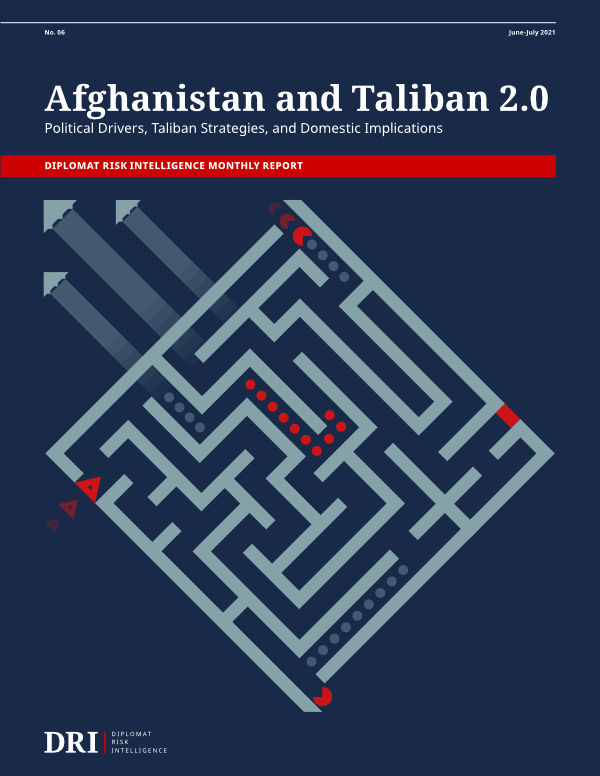| Welcome to the latest issue of Diplomat Brief. This week our top story explores life in Kamdesh, Afghanistan, where Taliban rule has been a reality since 2009. We also have an interview with Darren Byler, an assistant professor in the School for International Studies at Simon Fraser University, on the high-tech surveillance state underpinning detention camps in Xinjiang, China. |
| Story of the week |  | Society A Remote Corner of Afghanistan Offers a Peek Into the Future of the CountryWhat Happened: The Taliban takeover of Kabul is just over two months old, but they have controlled some parts of Afghanistan for far longer. U.S. forces withdrew from Kamdesh, in eastern Nuristan province, in 2009; life in the district now provides a glimpse of what might be in store for the rest of the country. Our Focus: Many locals in Kamdesh have no fond memories of the U.S. presence. “The Americans built nothing here; only their base which they later destroyed,” one local told The Diplomat. “With the Americans gone, the money stopped and nothing was left behind; but the security problems continued,” another added, a sign that not everyone is happy with Taliban rule, either. Indeed, many locals blame the Taliban for a moribund economy and chafe under the group’s restrictive rules – sentiments that are already echoing throughout the rest of Afghanistan. What Comes Next: If Kamdesh is any preview, Afghan sentiments toward both the U.S. occupation and Taliban rule are complicated. Many in Kamdesh blame the United States for unfulfilled promises and local divisions. But many – sometimes the same people – are also unhappy with the Taliban’s performance in government, particularly the economic crisis underway across the country. Local sentiments in Kamdesh – and across Afghanistan – were summed up by one local: “We had a chance to develop our homeland, but we missed it and now more difficult days lie ahead.” Read this story |
| Behind the News | INTERVIEW Darren BylerDarren Byler, author of the new book “In the Camps: China’s High-Tech Penal Colony,” on the long-term outlook for Xinjiang: “The next generation of Uyghurs will grow up with an awareness that their movement and digital speech are being tracked and that they can always be deemed untrustworthy. The system is really the first settler colonial process of dispossession – taking the land and labor of a colonized people – that has been attempted in a fully digitized environment.” Read the interview |
| This Week in Asia | Northeast Asia North Korea Diplomacy Slogs onAnother week, another missile test from North Korea – this time, reportedly an SLBM. Meanwhile, the U.S. special representative for North Korea issues will be meeting with his counterparts in Seoul this week, as the United States and South Korea try to find a viable path toward dialogue with Pyongyang. Find out more | South Asia Communal Violence in BangladeshBangladesh is in the midst of its worst spate of communal violence in decades. Allegations of blasphemy sparked violent attacks on Hindus as well as their homes and businesses; over 100 people have been injured and at least five killed. The government vowed to punish the perpetrators, but many minorities fear the latest violence is evidence of a larger drift toward hardline Islamist sentiments. Find out more | Southeast Asia ASEAN Gearing Up for Summit and Related MeetingsThis week, ASEAN is preparing for a clutch of diplomatic meetings that will be held from October 26-28. These will include the Southeast Asian bloc’s twice-yearly conclave as well as the East Asia Summit, which will also include leaders from Japan, Russia, Australia, China, India, and the United States. Expect the agenda of the meetings to be dominated by growing superpower tensions, the recently announced AUKUS security partnership, and the ongoing crisis in Myanmar. The latter especially could be something to watch, after the bloc chose last week to uninvite Myanmar’s coup leader Min Aung Hlaing from the summit for dragging his feet on a regional peace plan. Find out more | Central Asia Remember: There's an Uzbek Presidential Election SoonFollowing a campaign so quiet as to be almost nonexistent, Uzbekistan will hold a presidential election this coming Sunday, October 24. Incumbent President Shavkat Mirziyoyev is expected to win. His Uzbekistan is not quite as repressive as that of Islam Karimov, but the political arena remains heavily circumscribed. Find out more |
| Visualizing APAC |  | Source: Our World in Data COVID-19 vaccination rates in the 10 ASEAN member states. Even though vaccine rollouts vary wildly across the region, the pressure is on each and every government to find a way to live with COVID-19. See the full picture |
| Word of the Week | ENVIRONMENT 米圧Beiatsu, A Japanese term for pressure from the United States. It’s a portmanteau of 米国 (Beikoku, America) and 圧力 (atsuryoku, pressure). Find out more |
| Webinar | The Diplomat Asks Can China and the US Cooperate on Climate Change?What are the prospects for China-U.S. cooperation on climate change, particularly in the lead-up to the U.N. climate summit in November? And if bilateral cooperation stalls, what other avenues are there for making progress on our planet's most pressing challenge? Join us today at 8 p.m. U.S. Eastern time for an expert overview of the prospects for China-U.S. cooperation on our planet’s most pressing challenge. Sign up for the webinar |
|  |





